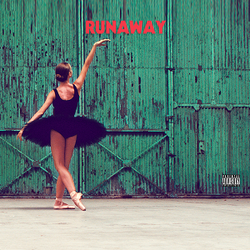 “Firework” by Katy Perry is far more than just a pop hit with an explosive chorus—it is a cultural touchstone that captured the zeitgeist of the early 2010s and continues to resonate as an anthem of self-belief and unapologetic authenticity. Released in 2010 as the third single from her album Teenage Dream, “Firework” quickly became a beacon of empowerment, inspiring listeners around the globe with its call to embrace individuality, celebrate inner strength, and confront personal doubts with confidence. The song is a pop juggernaut, blending emotionally charged lyrics with a bombastic, orchestral production that makes it feel more like a triumphant film score than a simple radio tune. But at its heart, “Firework” owes its enduring appeal to the sincere humanity behind its glittering sound.
“Firework” by Katy Perry is far more than just a pop hit with an explosive chorus—it is a cultural touchstone that captured the zeitgeist of the early 2010s and continues to resonate as an anthem of self-belief and unapologetic authenticity. Released in 2010 as the third single from her album Teenage Dream, “Firework” quickly became a beacon of empowerment, inspiring listeners around the globe with its call to embrace individuality, celebrate inner strength, and confront personal doubts with confidence. The song is a pop juggernaut, blending emotionally charged lyrics with a bombastic, orchestral production that makes it feel more like a triumphant film score than a simple radio tune. But at its heart, “Firework” owes its enduring appeal to the sincere humanity behind its glittering sound.
The song’s origins are rooted in Perry’s desire to create something meaningful—something that went beyond her earlier bubblegum hits and left a mark on the emotional lives of her listeners. Co-written with Ester Dean, Sandy Vee, and the powerhouse team of Stargate (Tor Erik Hermansen and Mikkel Storleer Eriksen), “Firework” was intended to be more than a catchy tune—it was designed to uplift. Perry has cited the writings of Jack Kerouac as part of her inspiration, especially his line about people “who burn, burn, burn like fabulous yellow Roman candles.” This image of human passion and potential bursting forth became the spiritual seed of the song, and from that moment, “Firework” took shape as a motivational pop sermon dressed in dancefloor attire.
From the opening lines, the song speaks directly to the listener’s insecurities. “Do you ever feel like a plastic bag / Drifting through the wind / Wanting to start again?” It’s an unconventional metaphor, yet hauntingly effective. There is a disarming vulnerability in that image—a sense of being powerless and unseen, blown off course. By invoking this question, Perry acknowledges the very feelings so many struggle with but rarely express: insignificance, self-doubt, a yearning to matter. It sets the tone for what follows—a lyrical and emotional ascent from hopelessness to self-actualization. This framing is crucial to the song’s success; it doesn’t preach empowerment from a place of detachment or superiority. Instead, it speaks from within the fog of insecurity, offering light not as an abstract ideal but as an achievable reality.
As the verse progresses and the pre-chorus builds tension, the listener is invited to recognize their latent potential. “You just gotta ignite the light, and let it shine,” Perry sings. These words aren’t just motivational—they are a challenge, a dare to throw off self-imposed limitations. When the chorus finally explodes with “’Cause baby, you’re a firework,” it is less a declaration than a revelation. The track’s production mirrors this shift, swelling into a wall of symphonic grandeur, complete with martial snares, triumphant strings, and a driving beat that feels like a parade of inner strength. It’s music that demands to be played loudly, windows down, arms outstretched toward the night sky. The song doesn’t merely say “you matter”—it lets you feel it.
The music video for “Firework” only amplified the song’s impact, transforming its metaphor into powerful imagery. Directed by Dave Meyers, the video showcases people from various walks of life overcoming adversity: a young boy embracing his sexuality, a girl confronting cancer, a boy protecting his sister from domestic violence. These stories culminate in literal fireworks bursting from each character’s chest, a visual metaphor for inner beauty and resilience. While the concept could have easily veered into sentimentality, the sincerity of the performances and the universal nature of the struggles portrayed made it a global phenomenon. “Firework” became more than a hit—it became a cultural rallying cry. Whether it was played at Pride parades, school assemblies, or on stages across the world, it was embraced as a symbol of collective and individual triumph.
One of the most fascinating things about “Firework” is how it managed to balance mainstream accessibility with profound emotional messaging. This is not an easy line to walk in pop music. Often, attempts at inspirational songs come across as hollow or calculated. “Firework” succeeds because it feels earned. Katy Perry doesn’t just sing to her audience; she sings with them. Her vocal performance—imperfect in the most human of ways—is imbued with urgency and conviction. She isn’t simply delivering a polished studio track; she’s channeling a truth she clearly believes in. The slightly raw edges of her voice on the chorus only enhance the authenticity. In fact, it’s that emotional imperfection that gives “Firework” its staying power. You can feel her fighting for the listener, fighting for herself, and fighting for something bigger than both.
From a musical perspective, the song’s structure is deceptively simple. Built around a standard pop progression, “Firework” uses repetition and ascending melodies to generate emotional momentum. But what truly elevates it is its arrangement. The fusion of electronic elements with orchestral instrumentation adds drama without overwhelming the message. The strings swell with hope, the beat marches forward like determination, and the layered vocals in the final chorus evoke a choir of affirmation. This clever production allows the song to appeal to both the casual pop listener and the discerning critic. It’s a rare case of a song being both a commercial and artistic triumph.
Commercially, “Firework” was a juggernaut. It reached number one on the Billboard Hot 100 and was certified multi-platinum in several countries. It became Perry’s third number-one single from Teenage Dream, helping her become the first female artist to score five number-one hits from a single album—a feat previously accomplished only by Michael Jackson with Bad. But beyond the chart statistics and sales figures, “Firework” had a cultural footprint that was impossible to ignore. It was played during major events like the 2011 Super Bowl, was the finale of her Part of Me concert film, and even received accolades from politicians and educators who praised its positive message for young people.
Part of what makes “Firework” so enduring is its versatility. It’s been used in everything from school performances to television shows, from weddings to funerals. It’s a rare kind of pop song that transcends context. It doesn’t matter if you’re a teenager struggling with identity, a parent going through a rough patch, or an artist doubting your work—the core message applies. That kind of universality is rare in music, especially in a genre that often prizes trend over timelessness. “Firework” is both—a song born of its moment that still sounds just as necessary and powerful more than a decade later.
Of course, like any massive hit, “Firework” has had its share of detractors—those who find it too saccharine, too obvious, or too earnest. But to dismiss it on those grounds is to misunderstand its purpose. This is not a song that tries to be subtle. It’s a song that demands to be heard, felt, and lived. It is intentionally loud, bold, and unapologetic—qualities that mirror the very spirit it encourages in its listeners. In that sense, its lack of subtlety is not a flaw but a feature. “Firework” is a celebration of big feelings, big dreams, and big moments of personal realization. It wears its heart on its sleeve, and in doing so, invites the listener to do the same.
The impact of “Firework” on Katy Perry’s career cannot be overstated. It marked a turning point where she transitioned from a pop star with quirky hits to a global icon with something real to say. While previous songs like “I Kissed a Girl” and “California Gurls” cemented her image as a playful provocateur, “Firework” added emotional depth to her persona. It was proof that Perry could inspire as well as entertain, and it laid the groundwork for future hits with similar themes of empowerment like “Roar” and “Part of Me.” It also showed that mainstream pop, often dismissed as frivolous, could have soul-shaking impact when crafted with intention and sincerity.
Ultimately, “Firework” stands as one of the defining pop anthems of the 21st century—a song that dares to ask us not only if we feel invisible or lost, but if we’re ready to light up the sky regardless. Its message is simple, but never simplistic: you are worthy, you are powerful, and you are not alone. That message, backed by a euphoric production and a career-defining vocal performance, has cemented its place in the modern musical canon. Long after trends change and playlists shift, “Firework” will still burn bright, reminding every listener that inside them is the spark of something extraordinary—something that, when released, can light up the world.


